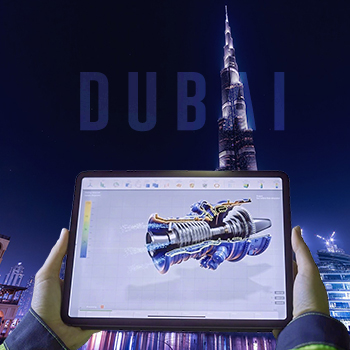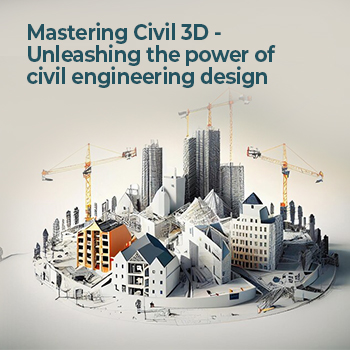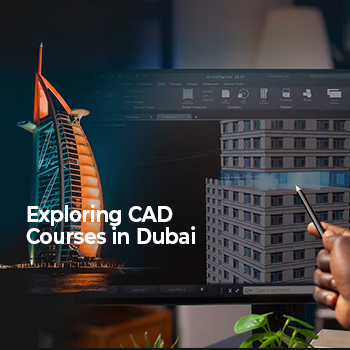
How Rhino Skills Can Help You Land High Paying Jobs in Dubai’s Architectural Firms
Why is Rhino 3D so in-demand in Dubai?
Dubai is probably more famous for future and fascinating architectural structures such as the Burj Khalifa and Palm Jumeirah, to mention a few. Contributions by cutting-edge architects have made Dubai one of the most fascinating cities for architects around the globe. Rhino 3D is an essential part of that environment.
Rhino is a powerful tool for modeling complex 3D architecture. A city like Dubai is always filled with innovative, challenging designs, where precision and efficiency in design play an important role. The ability to handle complex geometry makes Rhino an unparalleled tool in this regard. Architectural firms in Dubai seek professionals skilled in Rhino to realize their boldest and most innovative ideas. If you have Rhino Architecture experience, you can meet the challenging demands of high-end construction projects in Dubai.
Emerging Trends in Architectural Technology and Their Impact on Rhino 3D
The architecture sector is constantly evolving, especially in cities like Dubai, known for their technological advancements. Trends such as generative design, parametric modeling, and 3D printing are reshaping architectural concepts, and Rhino 3D is at the core of these innovations.
Generative Design and Parametric Modeling
Generative design uses algorithms to create multiple design variations based on specific inputs. Rhino seamlessly integrates these techniques with parametric design, allowing architects to explore different forms and configurations. This approach enables the creation of highly optimized, sustainable designs tailored to project needs.
3D Printing and Fabrication
3D printing is increasingly being utilized in architecture. Rhino integrates well with 3D printing software, allowing architects to create tangible models from digital designs. This enhances the design review process, making it easier to discuss and refine concepts. With such innovations driving Dubai's architectural scene, Rhino expertise can give you a competitive edge in securing high-paying jobs.
Types of Rhino Architecture Courses
To stay competitive in Dubai’s job market, acquiring Rhino Architecture skills is essential. Various courses cater to beginners, intermediate learners, and advanced professionals.
Beginner Courses
These courses introduce 3D modeling and Rhino basics. Learners will become familiar with the Rhino interface, tools, and commands while gaining the skills to create and manipulate basic 3D models for architectural design.
Intermediate Courses
For those with foundational knowledge, intermediate courses cover more advanced tools and techniques. Topics include parametric modeling, complex surfaces, and architectural drawings. Many courses incorporate project-based learning to solve real-world architectural problems.
Advanced Courses
Experienced architects can benefit from advanced courses that focus on Rhino’s most sophisticated features. Training includes generative design, integration with plugins like Grasshopper, and workflows that combine Rhino with software like Revit or AutoCAD. These courses are ideal for professionals working on high-profile projects in Dubai’s elite firms.
Factors to Consider When Selecting an Institution
Choosing the right institution for Rhino Architecture training is crucial for excelling in Dubai’s competitive architectural market. Key factors to consider include:
Accreditation and Reputation
Look for institutions with accreditation and a strong reputation in architectural education. Schools with industry connections increase your chances of securing high-paying jobs post-course completion.
Course Content and Specializations
Ensure that the course aligns with your career goals. Some courses focus on general 3D modeling, while others specialize in parametric design or digital fabrication.
Hands-on Learning Opportunities
Architecture is a practical field, so hands-on learning is essential. Choose courses offering practical assignments, workshops, or internships that allow you to apply skills in real-world scenarios.





 Testimonials
Testimonials Video Testimonials
Video Testimonials News & Events
News & Events Course Enquiry
Course Enquiry Achievements
Achievements Job Opportunities
Job Opportunities Image Gallery
Image Gallery Video Gallery
Video Gallery Overview
Overview Vision Mission
Vision Mission Collaboration
Collaboration Careers
Careers Contact Us
Contact Us






